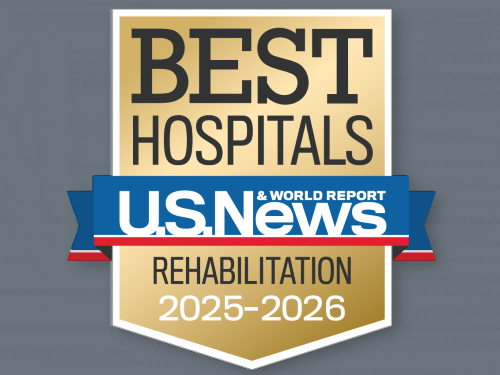Amobi Okoye is no stranger to physical conditioning and hard work. In 2007, after graduating from the University of Louisville with a degree in psychology, he was drafted by the Houston Texans in the first round of the year’s National Football League draft – the youngest player ever to hold that distinction. At his first start with the Texans, Okoye became the youngest player to appear in an NFL game since 1967. Over the next five years, he played successfully with the Texans, the Chicago Bears and the Tampa Bay Buccaneers, signing on for a second stint with the Bears in 2012.
In March 2013, out of the blue, he had a seizure in his office after working out with a friend. More seizures followed, and a trip to the Emergency Center at Memorial Hermann-Texas Medical Center led to admission to the Memorial Hermann Mischer Neuroscience Institute, where he was diagnosed with anti-NMDA receptor encephalitis by intensivist Imoigele Aisiku, MD.
Although described in the medical literature much earlier, the disease was not officially categorized until 2007 – the same year Okoye signed with the Texans. Anti-NMDA receptor encephalitis occurs when antibodies produced by the immune system attack NMDA receptors – proteins that control electrical impulses in the brain and are critical for judgment, interaction, perception, the formation and retrieval of memory and control of autonomic functions. Symptoms are wide ranging and may include seizures, sleep disorders, speech dysfunction, cognitive and behavior disturbances, movement disorders and erratic breathing, heartbeat and blood pressure.
Neurologists caring for the 6-foot-2-inch, 300-pound defensive tackle acted quickly, prescribing immunomodulatory treatment. He underwent a tracheostomy and was heavily sedated on a ventilator for the next two months. After discharge from Memorial Hermann-TMC on May 13, he was transferred to a long-term acute care facility, where caregivers weaned him off the ventilator and prepared him for admission to TIRR Memorial Hermann.
From June 21 until August 8, physiatrist Jacob Joseph, MD, led a team of nurses, therapists and neuropsychologists who worked together to help Okoye regain his independence. “The disease and several months in bed left Amobi disoriented, confused and deconditioned,” says Dr. Joseph, a brain injury medicine specialist and assistant professor of physical medicine and rehabilitation at McGovern Medical School at UTHealth. “Our immediate goals were controlling his seizures, managing cognitive and behavioral issues and working on conditioning after the long hospitalization. Physically he bounced back very quickly. After discharge, we referred him to the outpatient Challenge Program to work on his remaining cognitive deficits.”
The TIRR Memorial Hermann Challenge Program has a 30-year track record of success in producing high return-to-work and return-to-school rates after brain injury by engaging clients, family members, employers and schools in the process. Staff members work to help people recovering from brain injury and illness regain the ability to function optimally in their environment through physical therapy, occupational therapy, speech-language pathology, vocational counseling and neuropsychology services that focus on community re-entry skills.
Okoye, who lost 78 pounds and experienced a 145-day memory gap during his battle with anti-NMDA receptor encephalitis, remembers very little of his inpatient experience at TIRR Memorial Hermann. “I know I went through physical therapy, occupational therapy and speech therapy – and relearned everything as if I were a baby,” he says. “It was very difficult and not something I would wish on anyone.”
In the Challenge Program he was motivated to succeed. “I started regaining my memory and wanted to get back to doing what I love to do,” Okoye says. “I did everything they asked me to do plus more. After I left the program, I kept working to condition myself with my own trainer.”
Dr. Joseph describes anti-NMDA receptor encephalitis as “a very challenging disorder to manage. Thankfully Amobi’s doctors at Mischer Neuroscience Institute started treatment early and he was able to make a full recovery,” he says.
“We tend to take for granted what we’re put here on earth for,” Okoye says. “In finding your purpose you have to rely on your faith, which is tested every single day. Coming back from an illness that affects the brain is hard work. You have to keep at it, stimulating your brain in every way you can. I’m doing that every day and have set goals for myself.”
